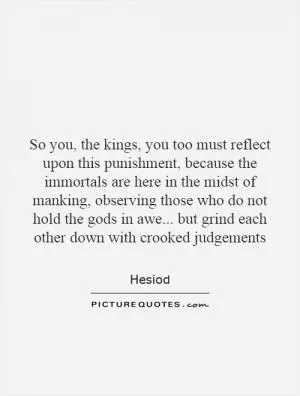For a man wins nothing better than a good wife, and then again nothing deadlier than a bad one

For a man wins nothing better than a good wife, and then again nothing deadlier than a bad one
In Hesiod's works, particularly in his poem "Works and Days," the importance of a good wife is emphasized as essential for a man's happiness and success. Hesiod, a Greek poet who lived in the 8th century BC, believed that a good wife was a valuable asset to a man, providing him with love, support, and companionship. On the other hand, a bad wife could bring misery, strife, and ruin to a man's life.Hesiod's statement that "For a man wins nothing better than a good wife, and then again nothing deadlier than a bad one" reflects the ancient Greek belief in the importance of marriage and the role of women in society. In ancient Greece, marriage was seen as a sacred bond between a man and a woman, and a good wife was considered a blessing from the gods. A good wife was expected to be loyal, faithful, and supportive of her husband, helping him to achieve success and happiness in life.
On the other hand, a bad wife was seen as a curse, bringing discord, unhappiness, and misfortune to her husband. Hesiod warns men to choose their wives carefully, as a bad wife can destroy a man's reputation, wealth, and happiness. In ancient Greece, a bad wife was often portrayed as deceitful, unfaithful, and manipulative, causing chaos and destruction in her husband's life.
Hesiod's words serve as a cautionary tale for men to be mindful of the importance of choosing a good wife. A good wife can bring joy, love, and fulfillment to a man's life, while a bad wife can bring misery, strife, and ruin. Hesiod's message is clear: a man's happiness and success depend on the quality of his marriage, and it is essential to choose a good wife wisely.












 Friendship Quotes
Friendship Quotes Love Quotes
Love Quotes Life Quotes
Life Quotes Funny Quotes
Funny Quotes Motivational Quotes
Motivational Quotes Inspirational Quotes
Inspirational Quotes